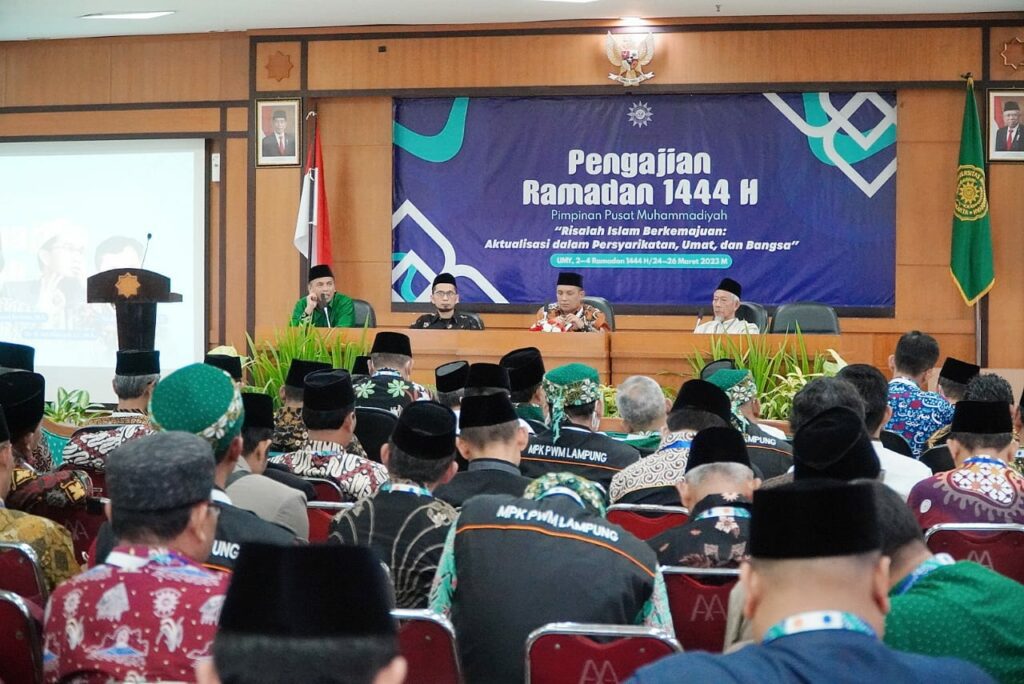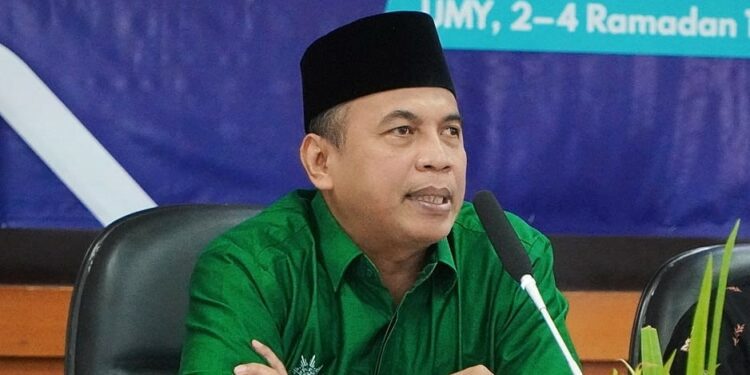MUHAMMADIYAH.OR.ID, YOGYAKARTA—Chairman of Muhammadiyah, Agung Danarto, believed that the thoughts of Ibn Taymiyyah were one of the origins of Muhammadiyah. Born in 1263, Ibn Taymiyyah had the doctrine that ijtihad (independent reasoning) was never closed. During his lifetime, he often engaged with philosophers as Mu’tazilah, Maturidiah, and Asy’ariyah. The essence of his criticism was to reject reason in constructing the understanding of the creed. Salafis only believes in the creed shown on verses of al-Qur’an and hadiths.
“A rational mind does not have power to interpret the Qur’an, except within the limits allowed by the language and reinforced by the hadith. The power of the rational mind only affirms and obeys nash (text),” said Agung in the Ramadan Preaching 1444 H held by Muhammadiyah on Saturday (25/03).
Agung said that, according to Ibn Taymiyyah, Salafi creed relies on three aspects: the oneness of God in essence and attributes, the oneness of God in creation/rububiyah, and the oneness of God in worship/uluhiyah. The consequence of this thought is that humans must worship Allah and not recognize any other deity besides Allah. The implication is a prohibition on elevating living or dead human beings as intermediaries to Allah, sanctifying graves, prohibiting visits to graves, and others.

“I think Ibn Taymiyyah’s thoughts are very strong in Muhammadiyah. Indeed, for a long time, Muhammadiyah tends to prohibit visits to graves, fearing to ask for blessings. For Ibn Taymiyyah, what is prohibited is asking for blessings. If it is only as a reminder of death, I think it doesn’t matter,” said Agung.
Agung continued that the successor of Ibn Taymiyyah in Salafism was Muhammad ibn Abd al-Wahab. This figure, who was from Arabia and was born in 1703, was more stringent in his religious practice than Ibn Taymiyyah. Some of his teachings are that one should not pray to Allah through intermediaries (wasilah); asking for help from a sheikh or deceased wali (saint) for getting married, having children, fortune, and safety is shirk; it is haram to recite dhikr (remembrance of Allah) and wirid (remembrance of Allah through reciting certain phrases) using a tasbih (a set of prayer beads); and it is haram to celebrate the Prophet’s birthday (maulid).
“In Muhammadiyah, some celebrate the Prophet’s birthday, while others do not. Tawasul (seeking mediation) and manaqiban (reciting praises of the Prophet) seem rare in Muhammadiyah. Some members of Muhammadiyah also participate in tahlilan (commemoration of the deceased) but do not organize it as hosts,” said Agung.
For Wahhabis, the sources of Islamic teachings are only the Quran and Sunnah, which are understood literally. Ijtihad is not a source but a method. According to Agung, this idea is different from Muhammadiyah, which understands both sources of Islamic law rationally.












Discussion about this post